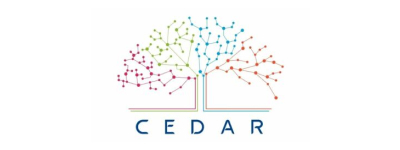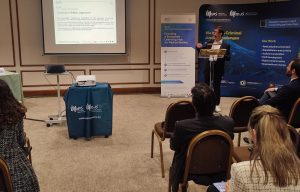Recent research has conceded that the crisis scenario arising from the repercussions of the COVID-19 pandemic led to what has been termed a ‘perfect storm’ from which sprang conditions for fostering the development and proliferation of radicalisation (Bartusevičius et al., 2021). The global outbreak of the COVID-19 virus is thought to have forced the terrorist and radicalisation phenomenon to adapt to the rapid and profoundly disruptive changes in society and people’s daily lives (Ivanov, 2022).
Alongside the devastating primary health consequences of COVID-19, the scenario forced governments to swiftly take action that led to sweeping, transversal, and multi-sectoral changes in how societies operate. These changes resulted in the intersection of social consequences such as compulsory lockdowns, which led to social life being forced to almost entirely take place in an online environment.
In turn, the latter was followed by psychological consequences, namely the feeling of isolation, uncertainty, and fear. Thus, this picture of social digitalisation and of decaying mental health prompted a context whereby vulnerabilities to online misinformation, propaganda, and extremist ideals surfaced and intensified (Radoini, 2020).
The impact of COVID-19 on mental health and the emergence of vulnerabilities to radicalisation
The economic, social and psychological consequences that resulted from the pandemic instilled a widespread climate of uncertainty and threat both at individual and collective levels (Kruglanski et al., 2021), especially concerning the economical and health global realities (Bartusevičius et al., 2021).
These consequences resulted in periods of intense psychological and emotional distress leading to short, medium, and long-term emotional and psychological fallout (Serafini et al., 2020). Indeed, feelings of unsafety and uncertainty linked with social isolation are factors that have been associated with high levels of psychological distress (Levinsson et al., 2022).
Moreover, such detrimental impacts on the psychosocial well-being of individuals, their families, and communities (Pfefferbaum & North, 2020) are admitted to having increased individuals’ vulnerabilities towards engaging in radicalisation processes (Ivanov, 2022).
Thus, since there is reliable evidence suggesting the existence of a significant correlation between adverse psychosocial symptoms and an increase in vulnerability to radicalisation processes (Ivanov, 2022), the reality brought by the pandemic surfaced the impact of mental well-being in the context of the radicalisation and violent extremism phenomenon.
The extremist and radical exploitation of mental health through the use of digital space during the pandemic
The societal shifts stemming from the COVID-related life-changing measures have also forced the transition of daily life into the digital realm. With people becoming more exposed to the content and pressures embedded in it, this contributed to a heightened vulnerability to radical and extremist content disseminated online (Naseer, 2020).
The methodologies of information dissemination and recruitment employed by extremists online are regarded as highly specialised and complex (Sultan, 2017). In recent years, the internet and social media have become central platforms through which the recruitment, radicalisation, and promotion of violent extremism are carried out (Conway, 2017;Ivanov, 2022; Lee, 2020).
Online extremists aim to instil social panic and ultimately lead to the recruitment and radicalisation of individuals, thus posing a threat to public safety (Naseer, 2022). As a whole, environments of crisis are thought to potentially provide favourable conditions for the growth of recruitment and radicalisation processes (Naseer, 2020). Furthermore, as it is often in circumstances of instability and social insecurity that these individuals or groups achieve their goals, it is reasonable to consider that, under this particular social scenario, such exploitation for radical and extremist purposes has taken place (Ivanov, 2022).
The prevention of online radicalisation in light of the pandemic experience: stressing the role of mental wellbeing
Hence, the pandemic has triggered several societal changes and with it some adversities to social and mental well-being, which may fuel opportunities for radicalisation and extremist engagement and recruitment (Ivanov, 2022).
Nevertheless, the above-pictured reality of radicalisation and violent extremism taking place in the digital space during the pandemic highlights the particular sensitivity and sophistication that preventive and security strategies may require. This is especially relevant considering that traditional measures may prove less adequate to intervene in the online environment (Naseer, 2022; Sultan, 2017).
However, Briggs and Feve (2014) had already shown that certain strategies could provide an enhanced capacity to counter and prevent online extremism, such as:
- Raising awareness to provide individuals with the tools to better identify disinformation or hateful content online;
- Involving and providing non-governmental organisations with resources to promote innovative alternatives for the countering of extremist narratives online.
Beyond these strategies aimed at promoting the development of counter-narratives, it is necessary to support complementary measures and programmes. These must focus on specific audiences, with the aim of tackling psychosocial issues, mitigating and remedying adverse emotional experiences (Levinsson, 2022).
Besides, due to the financial burden of the pandemic, it is crucial to support and finance infrastructures and measures that not only ensure the availability of mental health support services, but also raise awareness about their importance. Such support will ultimately contribute to reducing or mitigating individuals’ vulnerabilities to radicalisation processes, especially online.
In the light of this context of crisis and heightened risk of radicalisation, it is vital to train key stakeholders in the early prevention and detection of these processes given the complex and sensitive nature of the phenomenon. In this sense, through its training course and approach, the HOPE ‘Holistic Radicalisation Prevention Initiative’ project tackles the potential mental health-related risk factors for radicalisation and violent extremism, as well as the role of the online sphere in the phenomenon. Such will raise the awareness of practitioners to the thematic, particularly following the impact of the COVID-19 pandemic.
- References
- Bartusevičius, H., Bor, A., Jørgensen, F., & Petersen, M. B. (2021). The Psychological Burden of the COVID-19 Pandemic Is Associated with Antisystemic Attitudes and Political Violence. Psychological Science, 32(9), 1391-1403. https://doi.org/10.1177/09567976211031847
- Briggs, R., & Feve, S. (2014). Countering the Appeal of Extremism Online. Institute of Strategic Dialogue, London. https://www.dhs.gov/sites/default/files/publications/Countering%20the%20Appeal%20of%20Extremism%20Online_1.pdf
- Conway, M. (2017). Determining the role of the internet in violent extremism and terrorism: Six suggestions for progressing research. Studies in Conflict & Terrorism, 40(1), 77-98. https://doi.org/10.1080/1057610X.2016.1157408
- Ivanov, D. (2019). Trends In Radicalization Processes and Terrorist Activities After Covid-19 International Conference Knowledge-Based Organization, 28(1), 66-71. https://doi.org/10.2478/kbo-2022-0010
- Kruglanski, A. W., Molinario, E., & Lemay, E. P. (2021). Coping with COVID-19-induced threats to self. Group Processes & Intergroup Relations, 24(2), 284-289. https://doi.org/10.1177/1368430220982074
- Lee, B. (2020). Countering violent extremism online: The experiences of informal counter messaging actors. Policy & Internet, 12(1), 66-87. https://doi.org/10.1002/poi3.210
- Levinsson, A.; Froundfelker, R. L.; Miconi, D. & Rousseau, C. (2022). Violent radicalization during the COVID-19 pandemic: at the intersection of gender, conspiracy theories and psychological distress. Journal of Deradicalization, 33(7), 221-254. https://journals.sfu.ca/jd/index.php/jd/article/view/677/395
- Naseer, S. (2021). COVID-19: Incubator for Online Extremism. NCTC Newsletter, 38, 8-11. https://www.researchgate.net/publication/342170161_COVID19_Incubator_for_Online_Extremism
- Pfefferbaum, B., & North, C. S. (2020). Mental Health and the Covid-19 Pandemic. New England Journal of Medicine, 383(6), 510-512. https://doi.org/10.1056/NEJMp2008017
- Serafini, G., Parmigiani, B., Amerio, A., Aguglia, A., Sher, L., & Amore, M. (2020). The psychological impact of COVID-19 on the mental health in the general population. QJM : monthly journal of the Association of Physicians, 113(8), 531-537. https://doi.org/10.1093/qjmed/hcaa201
- Sultan, O. (2017). Combatting the Rise of ISIS 2.0 and Terrorism 3.0. The Cyber Defense Review
Know more about this project

HOPE
Holistic Radicalisation Prevention Initiative (Balkan countries)
HOPE is led by IPS_Innovative Prison Systems (Portugal) in partnership with organisations from several countries, namely the University College of Norwegian Correctional Service (Norway), Agenfor International Foundation (Italy), the Euro-Arab Foundation for Higher Studies (Spain), the Bulgarian Association for Policy Evaluation (Bulgaria), the Bulgarian General Directorate “Execution of Sentences” (Bulgaria), the Bucharest-Jilava Penitentiary (Romania), the Helsinki Committee for Human Rights in Serbia (Serbia) and the Slovenian Probation Administration (Slovenia).
For more information about the HOPE project and the HOPE Radicalisation Prevention Network, go to www.hope-radproject.org
Related projects

CEDAR
Continuing Education Against Radicalisation

EUTEx
Developing a European framework for disengagement and reintegration of extremist offenders and radicalised individuals in prison

IN2PREV
Law enforcement and community cooperation and training approach to prevent radicalisation by ensuring refugees’ successful inclusion

INDEED
Strengthening a comprehensive approach to preventing and counteracting radicalisation based on a universal evidence-based model for evaluation of radicalisation prevention and mitigation

INTEGRA
Integrated Community, Probation and Prison Services Radicalisation Prevention Approach

MIRAD
Multi-Ideological Radicalisation Assessment towards Disengagement

PARTES
Participatory Approaches to Protecting Places of Worship

PRACTICIES
Partnership against Radicalisation in Cities

R2COM
Radicalisation and violent extremism prevention in the community

R2PRIS
Radicalisation Prevention in Prisons
Related news

Empowering communities to support integration: a first step in preventing radicalisation
Read More »
“EU Knowledge Hub on Prevention of Radicalisation”: European Commission Launches a €60 Million Initiative for the next 4 years
Read More »





